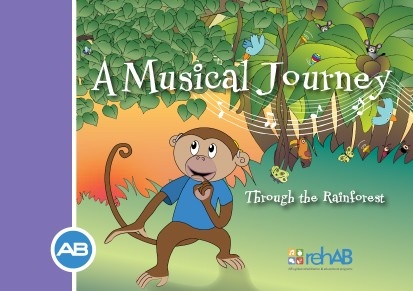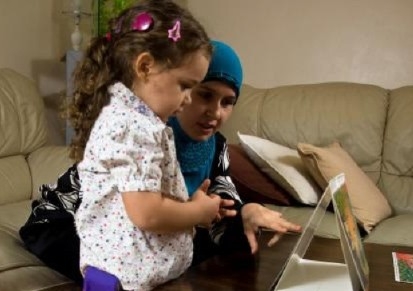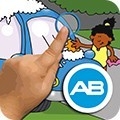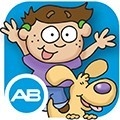
Giving Your Child a Strong Start
Starting school is a big deal! What your child is learning in the classroom now will lay a foundation for learning for the rest of their life. You can nurture this exciting time by continuing to develop their listening, speech and language, thinking, and reading skills at home.
Our fun and easy to use resources keep you up to date with the latest information and advice from world leaders in the field to help your child learn about themselves and the world around them!
The Magic of Music
Children love music!
Music is the most natural way to develop listening, spoken language and reading skills with your child. If your child wears Advanced Bionics cochlear implants, you can feel confident that they are getting the most from their musical experiences with you. So be sure to sing, play, dance, laugh, and explore the world of musical sound together!
A Musical Journey Through The Rainforest contains a range of activities to use at home and in (pre)school to encourage your child to listen and discriminate speech and music, develop new language, read key words, sing, and play instruments.

A structured series of training exercises for the voice are set in a natural musical context to motivate and engage your child. As all children progress at different rates, clear goals are included in the booklet in order for you to see your child’s progress.

This interactive resource aims to give you the confidence to use your own musical ideas in different books, and to create songs with your children. It illustrates how musical instruments can be used in an effective and constructive way to enhance listening, language and reading. If you do not have the instruments, you can listen to the music that comes with the activity book.
Listen and Learn e-seminars
Experts show you how to use music to reinforce listening and how to support your child’s language development with active interactions throughout your daily routine.
Encourage Your Child to Become an Independent Thinker
Make time to read every day
Books are a natural way to talk to your child.
Research has shown that early spoken language lays the foundation for later reading and writing skills. Regular talking is one of the best ways to help develop speech and listening skills from a young age! Sharing books everyday will encourage your child to listen to voices, language, and help them learn to read. So read to your child, play rhyming games, sing songs, talk about letters and sounds, and explore your library.
At home, find lots of easy-todownload activities and creative games and resources on the Listening Room.
Supporting Education at Home and at School
The Tools for Schools downloadable resources aims to support all areas of the education curriculum, and provides extra-curricular support to build their learning skills. This excellent range of resources developed by educationalists provides key advice & support materials to assist your child at home and in their Early Years Education foundation.
As your child gains confidence in their communication, it is important they also have confidence in managing their cochlear implant. The TFS resources include top tips that will provide them with lifelong educational support.
Anvari S.H., Trainor L.J., Woodside J., Levy B.A. (2002). Relations among musical skills, phonological processing, and early reading ability in preschool children. J Exp Child Psychol. Oct;83(2):111-30
Corrigall, K.A., & Trainor, L.J. (2011). Associations between length of music training and reading skills in children. Music Perception, 29(2), 147-155.
Patel, A.D. (2010). Music, biological evolution, and the brain. In: M. Bailar (Ed.), Emerging Disciplines. (pp. 91-144). Houston, TX: Rice University Press.
Tripney, J., Newman, M., Bird, K., Thomas, J., Kalra, N., Bangpan, M. & Vigurs. (2010). Understanding the drivers, impact and value of engagement in culture and sport. London: Department of Culture, Media and Sport. (CASE: the culture and sport evidence programme - retrieved 1 April 2012 from http://bit.ly/9GQs2n).
Papousek M. (1996) Intuitive parenting: a hidden source of musical stimulation in infancy. In: Deliege I, Sloboda J, eds. Musical Beginnings. Oxford, UK: Oxford University Press; 88 -112.
Welch, G. (2012). Literacy through music.


